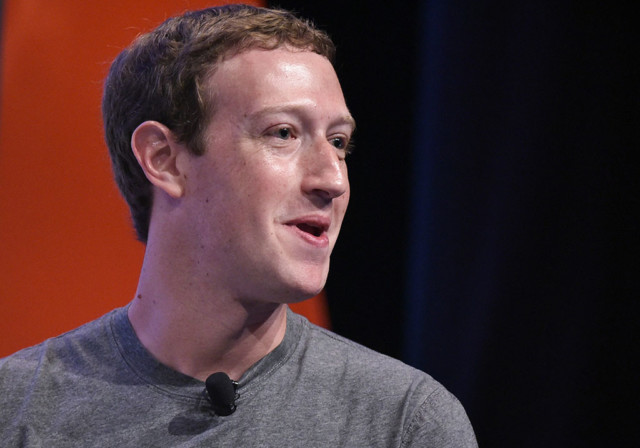Facebook’s CEO Mark Zuckerberg admits mistakes in how the social media platform responded to fake news postings and “Russian interference.” Saying in a statement, “But it’s clear now that we didn’t do enough to prevent these tools from being used for harm as well.”
Zuckerberg’s prepared statement was published on the U.S. House Energy and Commerce Committee’s website. He is scheduled to testify in front of the committee this week.
CGTN’s Daniel Ryntjes reports.
Zuckerberg says the company is also investigating every app that had access to a large amount of information before the company moved to prevent such access in 2014 — something that came too late in the Cambridge Analytica case.
He has also been posting actions Facebook is taking in response to prevent misinformation.
Also Starting Monday, the 87 million Facebook users who might have had their data shared with Cambridge Analytica will get a detailed message on their news feeds. Facebook says most of the affected users (more than 70 million) are in the U.S., though there are over a million each in the Philippines, Indonesia and the U.K.
In addition, all 2.2 billion Facebook users will receive a notice titled “Protecting Your Information” with a link to see what apps they use and what information they have shared with those apps. If they want, they can shut off apps individually or turn off third-party access to their apps completely.
Reeling from its worst privacy crisis in history — allegations that this Trump-affiliated data mining firm may have used ill-gotten user data to try to influence elections — Facebook is in full damage-control mode. CEO Mark Zuckerberg acknowledged that he made a “huge mistake” in failing to take a broad enough view of what Facebook’s responsibility is in the world. He’s set to testify before Congress next week.
Cambridge Analytica whistleblower Christopher Wylie previously estimated that more than 50 million people were compromised by a personality quiz that collected data from users and their friends. In an interview aired Sunday on NBC’s “Meet the Press,” Wylie said the true number could be even larger than 87 million.
That Facebook app, called “This is Your Digital Life,” was a personality quiz created in 2014 by an academic researcher named Aleksander Kogan, who paid about 270,000 people to take it. The app vacuumed up not just the data of the people who took it, but also — thanks to Facebook’s loose restrictions — data from their friends, too, including details that they hadn’t intended to share publicly.
Facebook later limited the data apps can access, but it was too late in this case.
Zuckerberg said Facebook came up with the 87 million figure by calculating the maximum number of friends that users could have had while Kogan’s app was collecting data. The company doesn’t have logs going back that far, he said, so it can’t know exactly how many people may have been affected.
Cambridge Analytica said in a statement Wednesday that it had data for only 30 million Facebook users.
Story by The Associated Press with additional information from CGTN.
 CGTN America
CGTN America (FILES) In this file photo taken on June 24, 2016, Facebook CEO and founder Mark Zuckerberg speaks during a discussion at the Global Entrepreneurship Summit at Stanford University in Palo Alto, California.
Zuckerberg, breaking his silence over the data scandal roiling the social network, acknowledged on March 21, 2018, the company made “mistakes” and needs to “step up” to fix the problem. “We have a responsibility to protect your data, and if we can’t then we don’t deserve to serve you,” Zuckerberg said in his first public comments since the scandal broke.
(AFP PHOTO / MANDEL NGAN)
(FILES) In this file photo taken on June 24, 2016, Facebook CEO and founder Mark Zuckerberg speaks during a discussion at the Global Entrepreneurship Summit at Stanford University in Palo Alto, California.
Zuckerberg, breaking his silence over the data scandal roiling the social network, acknowledged on March 21, 2018, the company made “mistakes” and needs to “step up” to fix the problem. “We have a responsibility to protect your data, and if we can’t then we don’t deserve to serve you,” Zuckerberg said in his first public comments since the scandal broke.
(AFP PHOTO / MANDEL NGAN)
